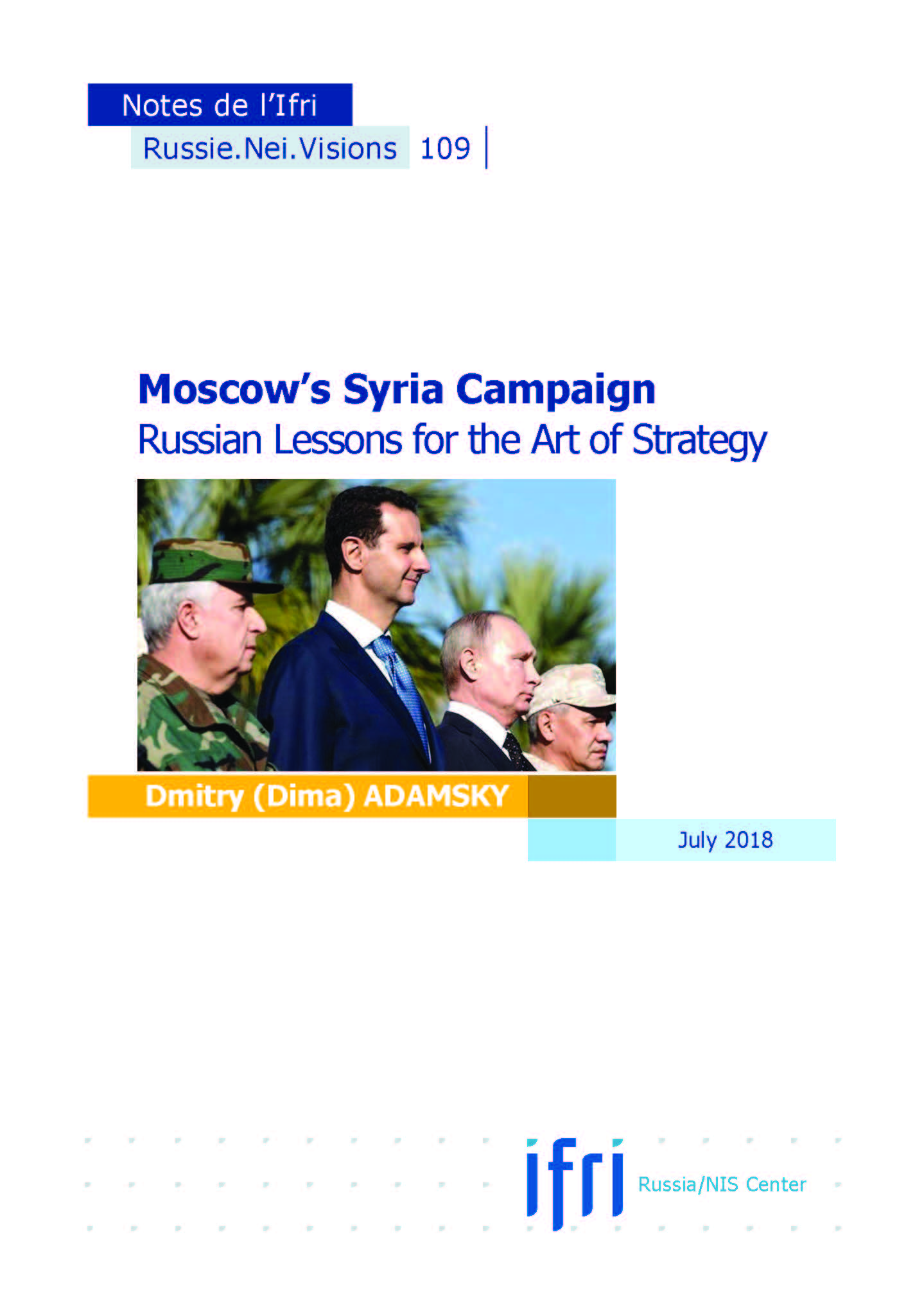Moscow’s Syria Campaign: Russian Lessons for the Art of Strategy

This monograph argues that the Syrian experience may leave a major imprint on Russian strategic thought and operational art.
It explores Moscow’s Syrian campaign and seeks to answer the following questions: How did the Russian art of strategy manifest itself? How did Moscow design the campaign and then estimate its operational performance, judged against its own ends? Which lessons has the Russian strategic community learned? How might these insights project on Moscow’s future strategic behavior? Which strategic trends are more likely than others?
Dmitry (Dima) Adamsky is a Professor at the School of Government, Diplomacy and Strategy at the IDC Herzliya.
Download the full analysis
This page contains only a summary of our work. If you would like to have access to all the information from our research on the subject, you can download the full version in PDF format.
Moscow’s Syria Campaign: Russian Lessons for the Art of Strategy
Related centers and programs
Discover our other research centers and programsFind out more
Discover all our analysesThe Caspian Sea as an Emerging Energy Hub : Potentials and Limitations
This report analyzes the prospects of the Caspian Sea region — and its key actors except for Russia and Iran — becoming an important energy hub serving the needs of the European Union (EU).
The European Union's Strategic Test in Georgia
The political crisis brewing in Georgia is of an existential nature for the country. What is at stake is Georgia's future as a democratic and sovereign European nation (EU).
Commanders of Putin's Long War: Purged, Reshuffled and Disgruntled
The trend of reshuffling the Russian top military command in the course of a fast-evolving and far from successful war has progressed unevenly both across the Armed Forces’ structures and in time. The rationale for and timing of the abrupt cadre decisions made by Commander-in-Chief Putin often defy logical explanation, and the rare official clarifications are no more informative than the usual information blackout.
Russian Military Manpower After Two and a Half Years of War in Ukraine
In addition to a military victory in Ukraine, the Russian leadership is planning to build up sizable troop formations for a possible conflict with NATO in the Baltic region and the Kola Peninsula. In particular, current plans aim for the military manpower to grow by about 350,000, reaching a total of 1.5 million soldiers and commanders. In the context of the current conflict in Ukraine, this cannot be accomplished without a new wave of mass mobilization.












